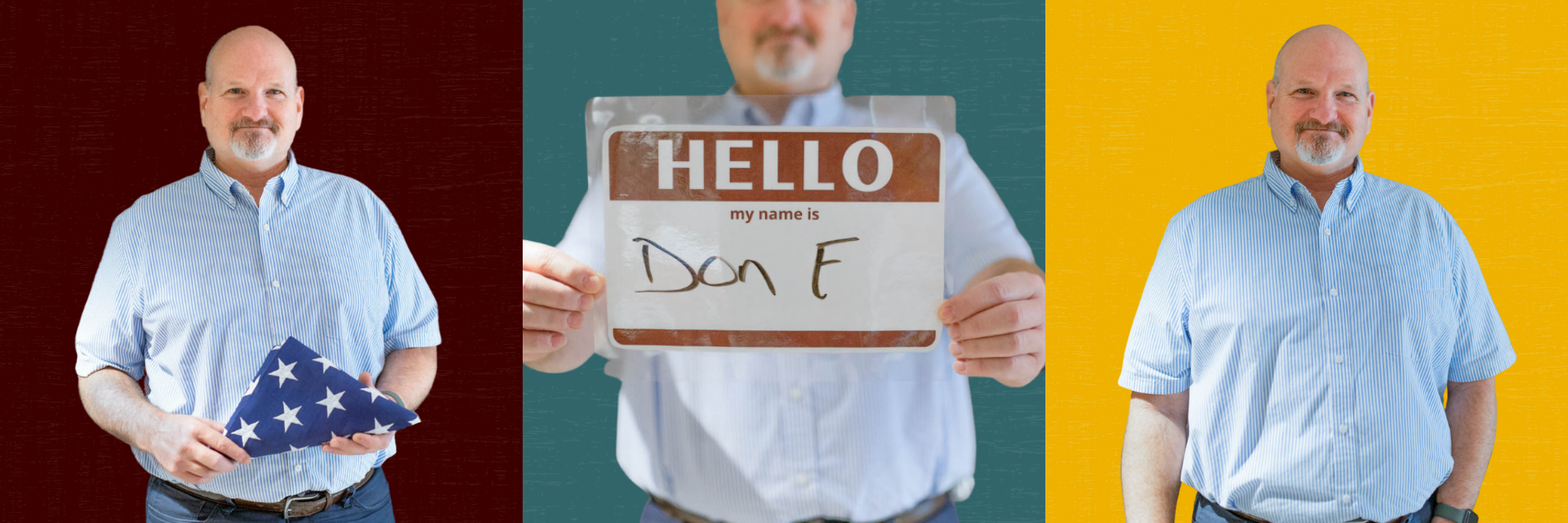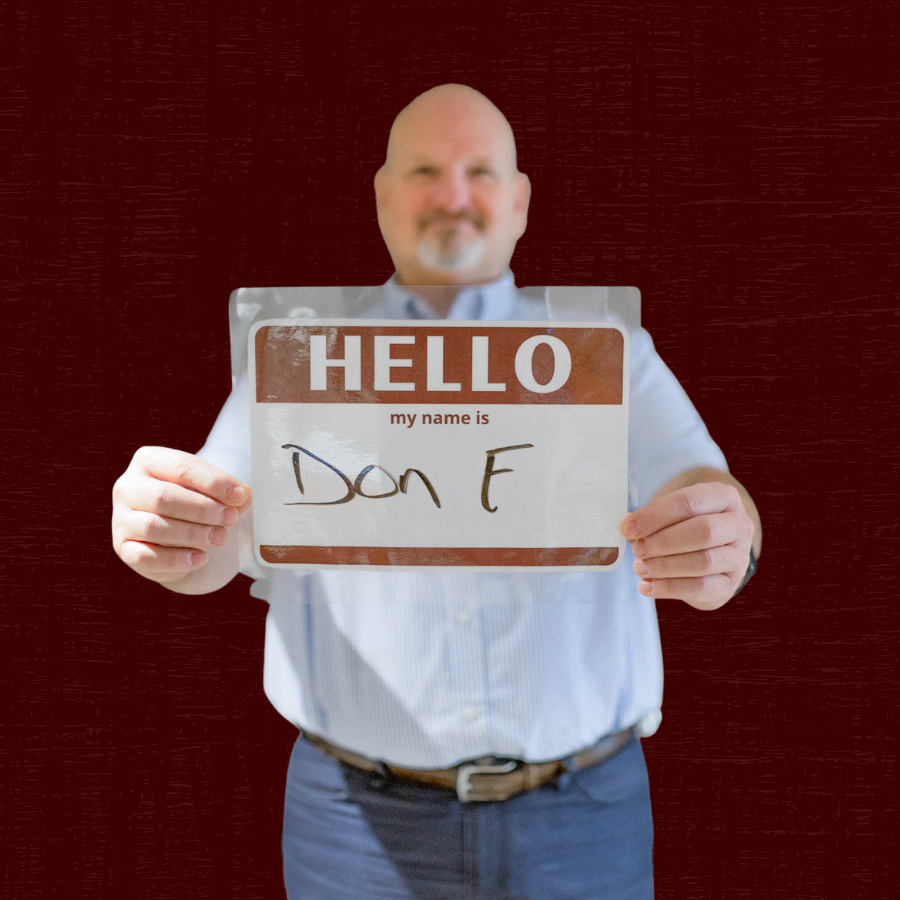BEHIND THE SCENES WITH DONALD FREEMAN

Enlisting Veterans as Students
By Dorian Martin ’06
After a 28-year career in the U.S. Army, Sgt. Maj. Donald Freeman has found a home in the Division of Student Affairs (DSA) at Texas A&M University, where he assists and inspires student veterans. As assistant director of the Don & Ellie Knauss Veteran Resource and Support Center (VRSC), he manages day-to-day operations and serves as the center’s representative on 11 committees, six of which are outside of the division. “It’s important to establish and maintain relationships with our cross-campus partners,” he said. “This enables us to provide better and more relevant support to student veterans.”
Freeman relishes the opportunity to help veterans transition into the role of students, which he has done for the center since 2015. “Across the nation, student veterans are often telling themselves and others that it is easier to lead a squad in combat than attending college,” he said. “Traditional students lose their identity when they leave high school to attend college. In other words, they are no longer the quarterback or head cheerleader. Our service members lose their identity and purpose when they leave the military. I have the great opportunity to help them realize they can succeed in college and the business world just as they did in the military with their new identity and sense of purpose.”
He joined the university in 2007 as the chief military science instructor in Texas A&M’s Corps of Cadets senior Army ROTC program. He credits Gen. Joe Weber, DSA’s former vice president, with helping him understand how influential his role could be. “He and others in the division helped me better understand the resources and opportunities available to our cadets and other students,” he said. “This position provides me with the opportunity to help with the holistic success of our students.”
Freeman’s Journey to Aggieland
Freeman had every expectation that he would do well in college. After all, he graduated sixth in his 376-member class at Sapulpa High School in Oklahoma while competing on the football and wrestling teams. His stellar effort was rewarded with a full-ride scholarship to attend the University of Tulsa.
Yet early in his freshman year in Tulsa, he realized he wasn’t in the right place. “I needed more time to prepare for the demands of college life,” he said, “so I decided to enlist in the military.” His first enlistment in the U.S. Army led to another and then another, and eventually to a military career. “I served across the globe both in peacetime and wartime,” he said. “I quickly made it to the rank of sergeant major, the highest pay grade for enlisted soldiers in any branch of service.”
He credits his rapid move up the ranks with his proactive approach to life. “My promotions were mainly due to training opportunities for which I volunteered throughout my career,” he said. “I discovered that saying yes to these experiences opened doors to more, allowing me to train and deploy with some of our most elite fighting forces.”
Freeman also credits his wife, Lorrie, for being an important stabilizing presence. “She stood by my side during my 28-year Army career, raising our two daughters, mostly as a single parent. I spent a great deal of time training and working away from my home base. This left my wife to raise our children alone while I was away,” he said, noting that his family now includes six grandchildren, three of whom the Freemans adopted.
These military experiences also changed Freeman’s view of the world—and his place in it. “I served in several countries where they do not have the infrastructure or ability to support its citizens,” he explained. “Most people think that the military is fighting and combat. Our military serves in that capacity, but it also serves as a threat deterrent, peacekeeper, and rebuilder by reestablishing or creating infrastructure in the nations where we serve.”

“Across the nation, student veterans are often telling themselves and others that it is easier to lead a squad in combat than attending college. Our service members lose their identity and purpose when they leave the military. I help our service members realize they can succeed in college and the business world just as they did in the military with their new identity and sense of purpose.”
MY HERO
My wife, who stood by my side during my 28-year Army career.
ONE WORD TO DESCRIBE ME
Resolute
YOU MAY NOT KNOW THIS ABOUT ME
I help facilitate a leadership development exercise for Mays Business School's Executive MBA Program
A TURNING POINT IN MY LIFE
Joining the military caused me to look at the world differently.
WHAT I LOVE ABOUT MY JOB
I love helping our veterans realize they can succeed in college and the business world just as they did in the military.

